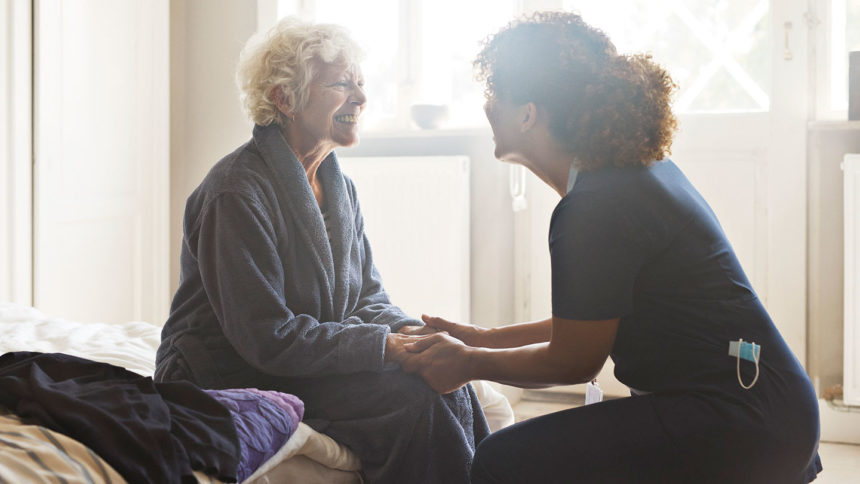
A new clinical concierge program is bringing extra support to skilled nursing and rehab patients and offering some relief for overtaxed frontline staff at a growing number of Mid-Atlantic facilities.
Management company Marquis Health Consulting Services has tapped nurses and advanced practice clinicians for a role that is the first of its kind in at least one of the markets where the company operates. The concierges serve as a dedicated resource for patients and their families, addressing questions about diagnoses, medications, treatments and transitions of care.
“We recognized that the pandemic resulted in staffing shortages and connectivity issues for families and nursing homes,” said Jennifer Hertzog, vice president of marketing and business development at Marquis, which manages about 60 skilled nursing facilities in seven East Coast states. “This model was born as a result. We are providing our patients and families a resource they’ve never had before.”
At a time when nursing homes still struggle to attract certified nursing aides and other frontline caregivers, concierges have helped to compensate, Hertzog added. A concierge can raise issues or concerns on a patient or family member’s behalf, communicate their own observations to other clinical team members, and help drive resident and family satisfaction.
The concierge has grown as a consumer-oriented concept during the pandemic, especially in senior living communities borrowing heavily from the hospitality industry. But lockdowns also ushered in more technology use, with many seniors needing help using devices and apps to talk to their loved ones. In some healthcare settings, non-clinician concierges now coordinate that and other needs as simple as delivering snacks or coordinating visits with therapy animals or clergy members.
Along those lines, Marquis has had its own hospitality-focused Guest Services program since 2018.
Getting clinicians involved
But Marquis was targeting something more when it launched the clinical concierge program at The Jewish Home for Rehabilitation & Nursing in Freehold, NJ, in late 2021. Annie Swartz, RN, filled that role and helped design a signature program that could be emulated across the Marquis brand; she also helps onboard new hires. The company now has a concierge in about 30% of its Mid-Atlantic facilities, with plans to eventually put one in every nursing home.
The initial focus, Hertzog said, has been on adding the clinicians to facilities with high patient turnover, particularly those operating specialty service lines that draw more post-op and post-acute patients. Last month, for example, the company added a nurse concierge to its Oxford center in Langhorne, PA, which offers sub-acute rehab after orthopedic surgery, stroke, or cardiac or pulmonary conditions.
Most of the concierges are LPNs or RNs, while at least one is a nurse practitioner.
Hertzog said while typical nurse hiring remains challenging in the sector, these positions have attracted a wide range of applications, including many looking to make a move from the hospital setting.
They typically split their time between fielding phone calls or emails from family, responding to emerging patient needs and proactively meeting with new admits or anyone who has a change in condition. They also participate in key step-down planning, guiding the resident and family through the return to home as desired. That’s a factor that could help with efforts to reduce hospital readmissions by “preparing individuals in a focused manner with education on diagnoses, resulting care needs [and] medication management,” Hertzog said.
While they play a role in intake and discharge, the goal, Hertzog added, is to ensure these additional clinicians are not pulled into daily frontline caregiving roles when a building is short-staffed.
“We’ve recruited these individuals with a very significant message of commitment to that,” Hertzog. “The folks that we have recruited are loving this role. It’s providing them the opportunity, in many cases, to step away from the day-to-day, hands-on clinical work that many of them were burned out from during COVID. But they are excited about the opportunity to still have that patient-facing involvement.”




